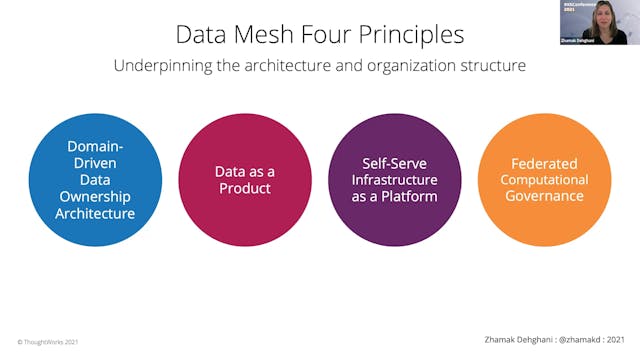Xian Li | AutoKnow: Self-Driving Knowledge Collection For Products
KGC | The Complete Collection
•
19m
Can one build a knowledge graph (KG) for all products in the world? Knowledge graphs have firmly established themselves as valuable sources of information for search and question answering, and it is natural to wonder if a KG can contain information about products
offered at online retail sites. There have been several successful examples of generic KGs, but organizing information about products poses many additional challenges, including sparsity and noise of structured data for products, complexity of the domain with millions of product types and thousands of attributes, heterogeneity across a large number of categories, as well as large and constantly growing number of products. We present AutoKnow, our automatic (self-driving) system that addresses these challenges. The system includes a suite of novel techniques for taxonomy construction, product property identification, knowledge extraction, anomaly detection, and synonym discovery. AutoKnow is (a) automatic, requiring little human intervention, (b) multi-scalable, scalable
in multiple dimensions (many domains, many products, and many attributes), and (c) integrative, exploiting rich customer behavior logs. AutoKnow has been operational in collecting product knowledge for over 11K product types.
Up Next in KGC | The Complete Collection
-
Ying Ding | Katana Graph Solutions: S...
When knowledge graphs in your company get larger and larger, a scalable graph search is in high demand. In the current graph search solutions, scalability is still a big issue. Furthermore, with the fast development of deep learning on graphs, many companies rely on deep learning methods to mine ...
-
Andreas Blumauer | The Semantic Conte...
Ambiguity, language discrepancies, and lack of background information are just a few challenges that organizations face on a daily basis when trying to analyze their content and data. When an organization produces data that is hard to manage, what methodologies can be used to turn unstructured (i...
-
Zhamak Dehghani | Introduction To Dat...
For over half a century organizations have assumed that data is an asset to collect more of, and data must be centralized to be useful. These assumptions have led to centralized and monolithic architectures such as data warehousing and data lake, and neither of which have been able to enable data...



